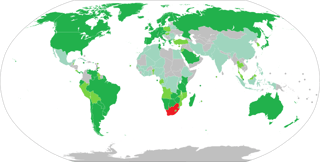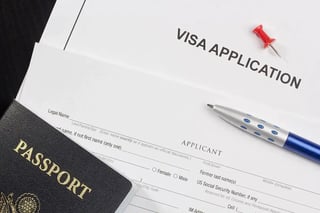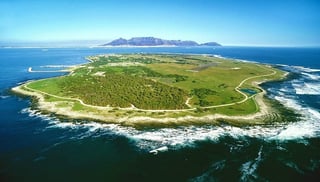For visa-exempt travellers to South Africa, preparation is key. Ensure you meet entry requirements, stay safe in higher crime areas, verify vaccinations, respect local culture, and embrace wildlife experiences. This ensures a smooth and enriching trip to this diverse nation.
Numerous countries, including Andorra, Australia, Brazil, Canada, Japan, the United States, and various European nations, benefit from visa exemption for South African tourism.
This enables stays of up to 90 days, promoting accessibility and convenience for travellers and fostering tourism and business connections with South Africa's rich offerings of diverse landscapes, wildlife, and cultural experiences.

Visa policy of South Africa
South Africa
Visa-free access to South Africa for 90 days
Visa-free access to South Africa for 30 days
eVisa for 90 days
Visa required for entry to South Africa for all passports
Being a South Africa visa-exempt passport holder offers several advantages for travellers. This status allows passport holders from eligible countries to enter South Africa for tourism, business, or other purposes without the need for a South Africa visa.
Some of the benefits are as discussed below:

Visa-exempt travellers can simply enter South Africa for tourism or business purposes without the need to apply for a visa in advance. This can save time and hassle, especially for travellers who book their trips last minute.
Visa-exempt travellers can spontaneously decide to visit South Africa without having to worry about obtaining a visa first. This can be especially beneficial for travellers who are on a tight budget or who have unpredictable work schedules.
Visa fees can add up, especially for travellers who are applying for visas for multiple countries. Visa-exempt travellers can save money by avoiding these fees. Additionally, visa-exempt travellers do not have to pay for the cost of processing their visa applications.
Depending on their nationality, some visa-exempt travellers can stay in South Africa for up to 90 days or longer without a visa. This can be beneficial for travellers who are planning to spend a significant amount of time in South Africa, such as for business purposes or to visit family and friends.
Visa-exempt travellers can attend conferences, meetings, and other business events without having to worry about obtaining a visa. This can make it easier for businesses to expand into South Africa and to connect with potential partners and customers.
For non-visa-exempt travellers planning a visit to South Africa, theSouth Africa visa application process involves various stages. Adherence to specific visa category requirements ensures a smooth application process for an enjoyable visit to South Africa.

The first step is to determine the type of visa you need based on your purpose of travel. There are different types of visas available, including tourist visas, business visas, study visas, and work visas.
Once you know what type of visa you need, you need to collect the required documents. This will vary depending on the type of visa, but some common requirements include:
-A completed visa application form
-A valid passport
-Two passport-size photographs
-Proof of travel arrangements (such as a flight itinerary and hotel reservation)
-Proof of financial support (such as a bank statement or credit card statement)
-Additional documentation may be required depending on the type of visa, such as a letter of invitation from a company or a letter of acceptance from a South African school.
Once you have collected all of the required documents, you need to submit your visa application to the nearest South African embassy or consulate. You can usually submit your application in person or by mail.
There is a visa application fee, which varies depending on the type of visa and your nationality. You need to pay the fee before your application can be processed.
In some cases, you may be required to attend an interview with a visa officer. The interview is an opportunity for the visa officer to learn more about your travel plans and the purpose of your visit to South Africa.
Visa processing times can vary, but it is important to apply well in advance of your intended travel date. It is generally advisable to apply for a visa at least four weeks in advance.
Avoiding common mistakes is crucial when applying for a South Africa visa to ensure a smooth and successful application process and enjoy the country's diverse attractions.
This can delay the visa processing time or even result in the visa being denied. Be sure to check the official website carefully to review the full list of required documents for the type of visa you are applying for.
The visa processing time can vary depending on the type of visa you are applying for and the volume of applications. It is generally advisable to apply for a visa at least four weeks in advance of your intended travel date.
There are different types of visas available for travel to South Africa, depending on the purpose of your visit. For example, there are visas for tourism, business, study, and work. Be sure to select the appropriate visa category for your trip.
It is important to adhere to the validity of your visa and not exceed your allowed stay in South Africa. Overstaying your visa is a serious offence and can lead to fines, deportation, and future visa restrictions.
Visa requirements and procedures can change at any time. Be sure to keep abreast of the latest updates by checking the South African Department of Home Affairs website regularly.
Here are some additional tips to avoid common mistakes when applying for a South Africa visa:
For visa-exempt travellers to South Africa, preparation is key. This ensures a smooth and enriching trip to this diverse nation.
By following these tips, visa-exempt travellers can ensure a smooth and enriching trip to South Africa.
It is important to be flexible and adaptable when travelling to South Africa. Things don't always go according to plan, so it's important to have a sense of humour and go with the flow. And most importantly, enjoy the experience! South Africa is a beautiful and diverse country with a lot to offer visitors.
South Africa offers diverse attractions, including safaris in Kruger National Park, exploring Table Mountain in Cape Town, visiting Robben Island, experiencing the culture of Johannesburg, and enjoying the scenic Garden Route.
Here's an elaboration on some of the must-see and must-do activities in South Africa:
Located in northeastern South Africa, Kruger National Park is one of the world's most renowned wildlife sanctuaries.Embark on thrilling game drives to spot the Big Five (lion, leopard, elephant, buffalo, and rhinoceros) and numerous other wildlife species.

Experience the African bushveld and stay at lodges or camps within the park for an immersive safari adventure.
Table Mountain is an iconic natural landmark that dominates the skyline of Cape Town.
Take a cable car ride or hike to the summit for breathtaking panoramic views of the city, the Atlantic Ocean, and the surrounding landscapes.
Explore the rich flora and fauna on the mountain, including unique plant species called fynbos.
Robben Island, located in Table Bay, is a UNESCO World Heritage Site and a symbol of South Africa's struggle for freedom.

Visit the former maximum-security prison where Nelson Mandela was held for 18 years. Guided tours are often led by former political prisoners, providing invaluable insights into the country's history.
Johannesburg, also known as Jo'burg or Egoli, is the largest city in South Africa and a melting pot of cultures.
Explore the Apartheid Museum for a comprehensive understanding of South Africa's history, especially the apartheid era.
The Wild Coast is a rugged and unspoiled region along the Eastern Cape coastline, known for its pristine beaches, rolling hills, and cultural experiences.

Visit traditional Xhosa villages, hike along coastal trails, and discover secluded beaches.
The Garden Route is a scenic stretch of coastline along the southern coast of South Africa, known for its lush vegetation, picturesque landscapes, and outdoor adventures. Drive along the route, stopping at charming towns like Knysna and Plettenberg Bay.
South Africa is renowned for its wine production, and the towns of Stellenbosch and Franschhoek in the Western Cape are at the heart of the country's wine region.

Take wine tours to sample some of the world-class South African wines. Enjoy picturesque vineyard landscapes and indulge in gourmet dining at winery restaurants.
The Drakensberg, or "Dragon's Mountains," is a stunning mountain range offering excellent hiking, rock climbing, and outdoor activities.
Explore the Royal Natal National Park, home to the dramatic Amphitheatre, and take scenic hikes to see waterfalls and ancient rock art.
During the COVID-19 pandemic, travel restrictions and requirements, including testing and quarantine, have been subject to change. Visa-exempt travellers should stay updated on the latest travel advisories, testing requirements, and quarantine regulations before planning their trips.
The future of visa-exempt travel to South Africa will depend on various factors, including changes in South Africa's immigration policies, international relations, and global security concerns. Travellers should continue to monitor updates and prepare accordingly for their trips to South Africa.
What is a visa-exempt passport holder for South Africa?
A visa-exempt passport holder refers to individuals from specific countries who can enter South Africa for tourism, business, or other purposes without the need to obtain a visa in advance. They are granted entry based on their nationality and the visa exemption agreements between their countries and South Africa.
How long can visa-exempt passport holders stay in South Africa?
Visa-exempt travellers can typically stay in South Africa for up to 90 days within a 180-day period, but the specific duration may vary depending on the traveller's nationality and the purpose of their visit. It's essential to check the specific terms and conditions when planning your trip.
Can visa-exempt passport holders extend their stay in South Africa?
Yes, it is possible to extend your stay in South Africa as a visa-exempt traveller. However, you must apply for an extension before your initial 90-day period expires. Extension applications are subject to approval, and it's advisable to consult with the nearest embassy/consulate for guidance.
Can visa-exempt travellers work or study in South Africa?
Generally, visa-exempt travellers are not allowed to work or study in South Africa without obtaining the appropriate work or study visa. The visa exemption typically applies to tourism, business meetings, and short-term visits.
Are there any specific entry requirements for visa-exempt travellers?
Visa-exempt travellers must have a valid passport with at least six months of validity beyond their intended departure date. Additionally, they may be required to provide proof of accommodation, a return or onward ticket, and sufficient funds to cover their stay. It's advisable to check the latest entry requirements before travelling.
Do visa-exempt travellers need to get vaccinated before visiting South Africa?
Vaccination requirements can vary based on your travel history and the specific region of South Africa you plan to visit. Certain areas may have specific health risks like malaria, so it's essential to check with a healthcare professional or travel clinic to determine if vaccinations or health precautions are necessary.
What should visa-exempt travellers know about safety in South Africa?
Travellers should stay informed about safety conditions, avoid displaying valuable items, use reputable transportation services, and exercise caution in unfamiliar surroundings, especially at night. It's a good practice to follow local safety advice.
Step1: Complete the online application by providing your passport details.
Step2: Submit payment online using a credit card.
Step3: Monitor your email for confirmation of payment and receipt of your eVisa, which will be sent electronically.
To help us improve